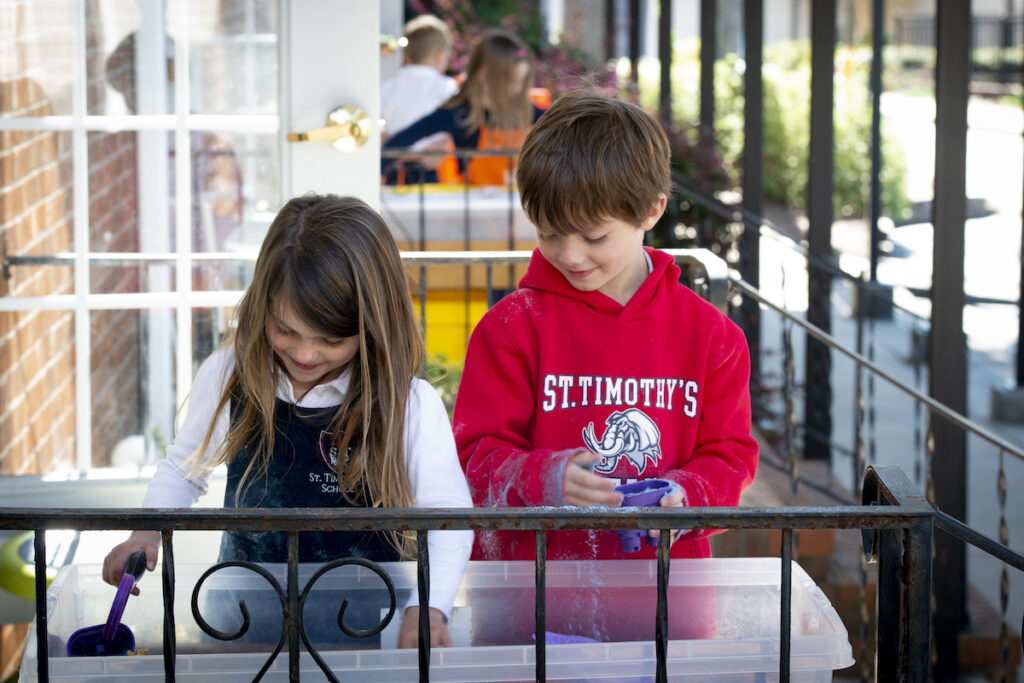For many children, it’s hard to believe that the words’ learning’ and ‘play’ could be used in the same sentence. However, the practice of learning through play has become an educational staple among pre-k programs and grade school classrooms nationwide.
At St. Timothy’s School, we foster a nurturing and open environment for learning through play and self-discovery. Our team takes an intentional approach that allows students to grow through everyday opportunities and set formative foundations for lifelong learning. Read below to learn more about the importance of learning through play and how St. Timothy’s incorporates this concept into our research-based curriculum.
What is Learning Through Play?
Learning through play is an educational concept that teaches children to learn and make sense of the world around them. Rather than solely using the traditional teacher-student instructional method, schools now implement learning through play to encourage young learners to explore, experiment, and gain a deeper understanding of educational concepts. For example, preschoolers might learn through play by creating a make-believe restaurant, allowing them to get creative and create make-up menus, recipes, or grocery lists.
Learning through play is a distinctive educational method. In contrast to more conventional teaching methods, learning through play possesses the following key elements:
Unstructured
Learning through play is unstructured and does not involve predetermined plans or rules that limit a child’s exploratory learning.
Enjoyable
Learning through play is intended to be enjoyable, as it gives children the opportunity to be active and social and engage with their environment in a fun and productive way.
Self-guided
Learning through play is self-guided. Though teachers and parents can facilitate learning through playtime, a child will engage with the activity according to their preference.
Process-oriented
Learning through play focuses more on the process of learning rather than the learning objective.
Imaginative
In the early years, learning through play is generally imaginative. Many activities involve make-believe games where children can use multisensory strategies and embrace creativity.
Why is Learning Through Play Important in Schools?
Learning through play is important throughout pre-k programs and grade schools because it engages students in a captivating and unconventional way. Young learners tap into their critical thinking and social-emotional learning skills by interacting with peers, being active, exploring new experiences, and meeting new physical and mental challenges. Learning through play is an excellent way for children to develop skills in negotiation, problem-solving, perspective-taking, role-taking, cooperation, and social understanding.
How does St. Timothy’s Encourage Learning Through Play?
St. Timothy’s School’s educational program builds cumulatively as students progress through pre-k and kindergarten, lower school, and middle school. Our team uses learning through play to intentionally educate and support our students as they develop academically, physically, socially, and spiritually. We promote curiosity, discovery, and community inside and outside the classroom through co-curricular activities, outdoor learning opportunities, community field trips, and more.
Private Education at St. Timothy’s School
St. Timothy’s School is a private school in Raleigh, NC that encourages young learners to self-advocate inside and outside the classroom. With a comprehensive curriculum built on independence, creativity, problem-solving, and more, we help our students develop lifelong communication skills. Visit our website today to learn more.

